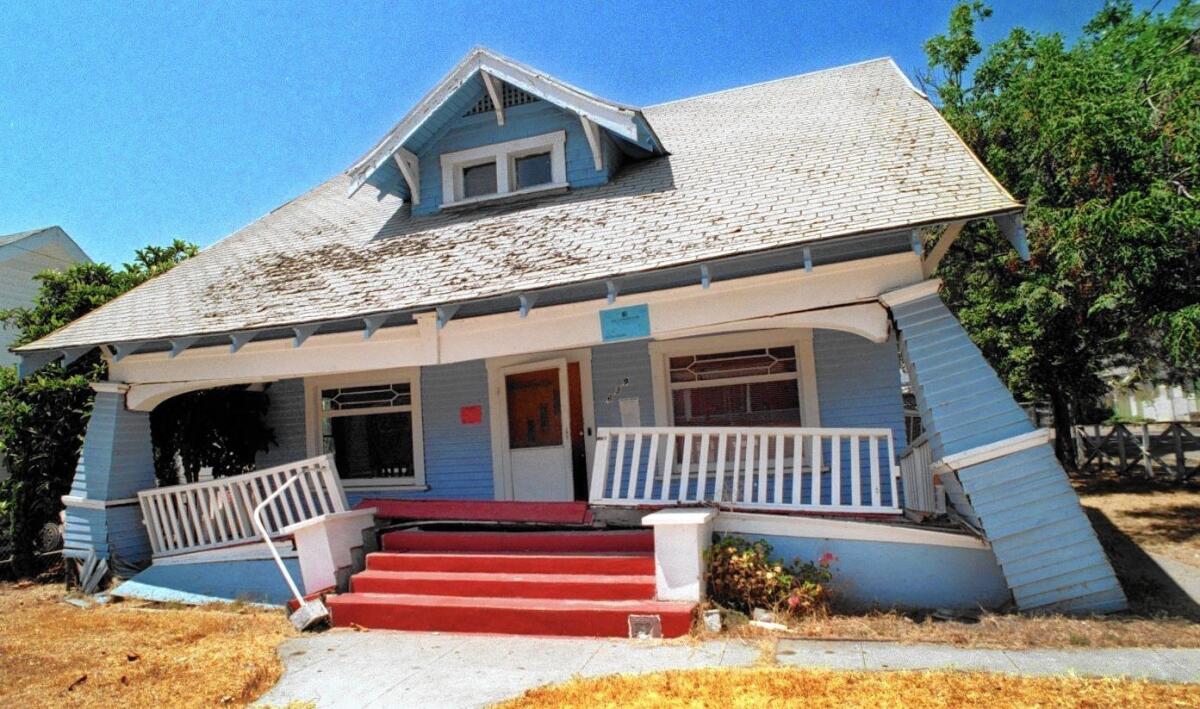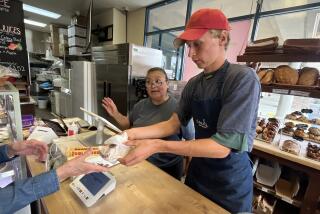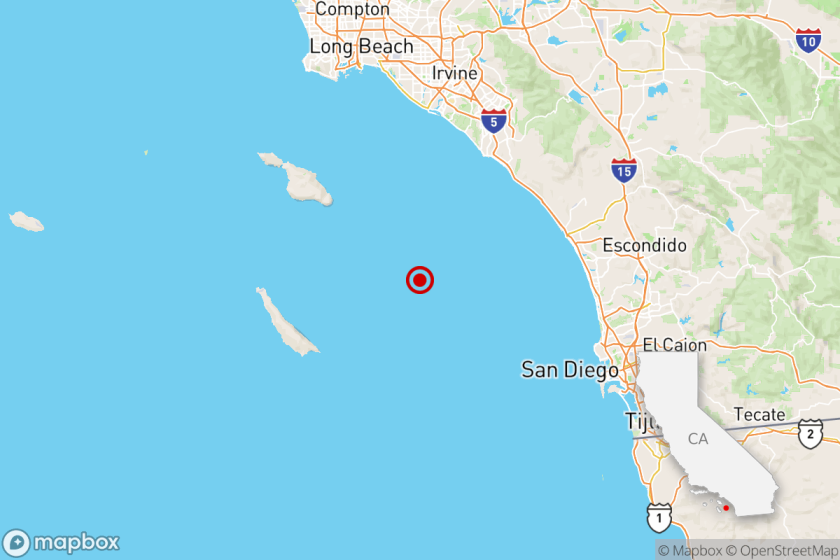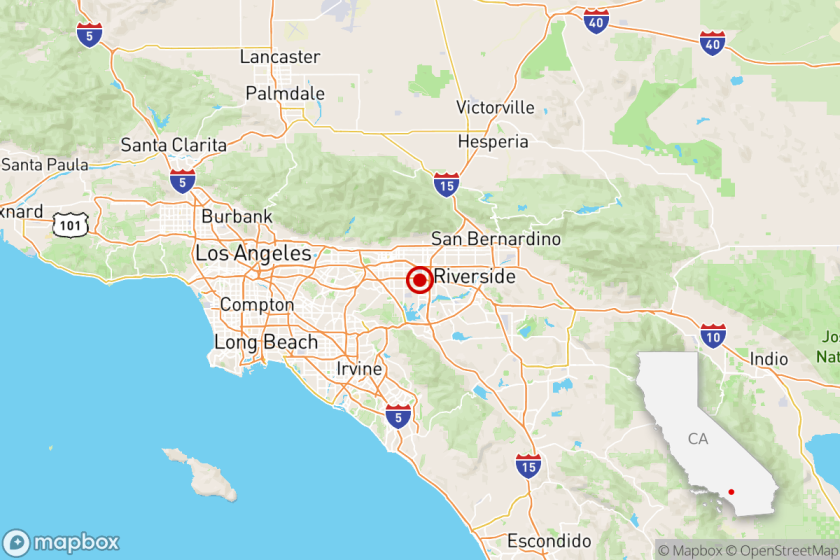When The Big One hits, will you be ready? Take our quiz to be sure

We all know that it’s only a matter of when, not if, the Big One hits.
Yet so few of us are prepared for a sizable earthquake or another disaster.
“We’ve got it pretty good here,” said Chris Ipsen, a spokesman for the Los Angeles City Emergency Management Department. “We live in an area that has a lot of resources, the weather is excellent … people just get real comfortable.”
In many other parts of the country and around the globe, light switches don’t always work and tornadoes, torrential rains and crippling snowstorms are a seasonal occurrence. But in Southern California, Ipsen said, “the mentality can be, ‘It’s not going to happen, and if it is going to happen, it’s not going to happen to me.’”
See the most-read stories in Life & Style this hour >>
But it might — so all of us should be prepared to be self-sufficient — no power, no outside assistance — for a minimum of 72 hours and up to 14 days in a worst-case scenario.
In anticipation of California’s annual earthquake drill — the Great California Shakeout, slated for Oct. 15 — we’ve put together a quiz to help gauge our readiness. It’s not exhaustive, but it will give you some indication of areas that need work.
1) Is your house ready to take a hit? Have you:
— Made sure that there are no potentially dangerous items — such as heavy picture frames or mirrors — hanging over your beds and sofas? 1 point
— Bolted bookcases and other tall, heavy pieces of furniture to wall studs? 2 points
— Put latches on cabinets? And reorganized shelves and cabinetry so that glass and heavy items, which can become projectiles during an earthquake — are stored on lower shelves? 3 points
— Strapped the water heater and heavy appliances to wall studs? 4 points
2) Do you have a family disaster plan? Have you:
— Identified the safest places in each room to go during an earthquake and rehearsed getting there? Does everyone know where earthquake supplies are located? 1 point
— Does everyone know what role to play in the first few critical minutes after a disaster? Perhaps the kids collect the family pets and retreat to a safe spot while an adult scouts the rest of the house for damage. 2 points
— If you work far from home, is there a backup plan for child care if you are unable to get back to your house? 3 points
— Does everyone know how to turn off the utilities (water, gas and power?) and how to use a fire extinguisher? And if any special tools are needed, are they stored nearby for easy access? 4 points
3) Have you researched earthquake-preparedness kits online, such as the Los Angeles County Emergency Survival Guide, to see what you might be missing? In addition to basics such as first-aid kits and flashlights with extra batteries, do you:
— Have enough nonperishable food and water for you and your pets to last at least a week, and a manual can opener or two? 1 point
— Have solar-powered flashlights, lanterns and radio? And other “little things” that you’re sure to want if a disaster drags on, like extra toilet paper, moist towelettes or contact lens solution? 2 points
— Aim to keep your cars’ gas tanks topped off? (A good general rule: Don’t let it drop much below half a tank.) 3 points
— Have cash, in small denominations, tucked away someplace safe? 4 points
4) Not everything in your earthquake kit needs to be so practical. Have you set aside:
— Books and reading lights with fresh batteries? 1 point
— Family games that don’t require electricity? 2 points
— Favorite treats for you and your pets? 3 points
— Bottles of wine? 4 points
5) Does everyone in your family (including the pet) have a “grab-and-go” bag at the ready? Does it include:
— Two full changes of clothing, including sturdy shoes comfortable for walking? 1 point
— Basic toiletries, including feminine hygiene products? 2 points
— Weather protection as needed? (Hats, sunscreen, blankets, jackets.) 3 points
— Do you have smaller earthquake kits in the trunk of your cars, at your work desk and any other place that might be needed? 4 points
6) How will you communicate with family members?
— Do you have an agreed-upon social media “meeting” place — such as Facebook — to leave messages in case phones are down? (“The Internet has proven itself to be pretty resilient,” Ipsen said.) 1 point
— Does everyone in your family have a printed sheet that includes cell phone and landline numbers for all immediate family members, as well as numbers for out-of-town relatives who can act as a clearinghouse for information? 2 points
— Do you have a printout of addresses and phone numbers for your nearest hospital, pharmacy, doctor, police department, fire station and vet? (You may know where these places are, but you might need to quickly hand this information off to someone else.) How about contact information for neighbors, school officials and others whom you might need to reach if you are unable to get back home? 3 points
— Do you also have: A solar cellphone charger or at least one backup charger that is kept as fully charged as possible? 4 points
7) What if you have to leave your home? Do you have copies of important documents on a flash drive or stored in a grab-and-go file somewhere safe (like a safe)? And do they include:
— Difficult to replace documents, such as birth certificates, social security cards, marriage certificates, passports and titles to vehicles? 1 point
— Bank account and credit card numbers and an extra set of keys? 2 points
— Wills and medical information? 3 points
— A property record (such as a tax bill) that can help prove you own your home, and your most recent tax return? 4 points
8) Your pet needs to get ready too. Do you have:
— A collar or tag with your cellphone number and address? 1 point
— A pet carrier that includes your personal information? 2 points
— Necessary supplies of medications and important medical records? 3 points
— A current picture in case your pet is lost, as well as the phone numbers and addresses of nearby shelters? 4 points
9.) Do you and your family members:
— Know the threats and risks unique to your area (such as hillsides prone to landslides or streets that are likely to flood), and how to avoid them? 1 point
— Do you know where to get information during an emergency, and what radio and social media channels to follow for local emergency alerts (for example, you can sign up for emergency alerts at www.lacounty.gov/emergency and notifyLA.org and follow @ReadyLA on Twitter)? 2 points
— Know which neighbors might need assistance, perhaps because of age or disability? 3 points
— Have red-and-green front doorknob hangers to signal whether you are OK or need help. These signs help first responders get help to the injured as quickly as possible and can be printed out at 5steps.la/5-step-toolkit/. 4 points
10.) Do you have a routine for the upkeep of your emergency plans?
— Do you know the emergency preparedness plan at your children’s school? Do you know how it changes with each passing school year? (Do you also know similar plans for your work?) 1 point
— Do you have a list of the food items — and their expiration dates — in your earthquake kit? That way you can replace as needed. 2 points
— Do you swap out emergency batteries at regular intervals? (Perhaps using the changing of the clocks each spring as a reminder) 3 points
— Do you update your “go” bags once a year? 4 points
If you completed this quiz, you might be feeling overwhelmed. But don’t feel discouraged. At most, only 20-25% of the population in Southern California is truly ready for a disaster, Ipsen said.
If you tallied 80 points or higher: You’re an “Alpha,” a Type A personality who gets the job done. “These are the kind of people we need more of in Los Angeles,” Ipsen said. “They are the true leaders.”
If you scored between 60 and 79 points: “You’re almost there. You just need to do a couple more things and you’ll be there. Think of others that rely on you, and get it done.”
If you scored between 40 and 59 points: “Don’t be satisfied with that,” Ipsen said. “Get out of your comfort zone and take it to the next level. You can do better.”
Scored lower? It’s time for action. “There are a lot of resources out there to make the job easier,” he said. “Take the first step.”
Just think about how prepared you’ll be to protect yourself and your family if you make a game plan.
Tackle the easier items first, and then work your way through the rest of it, a week at a time. If you do that, you’ll be ready by the time the new year rolls around.
How about that for a resolution?
::
Resources to help you prepare for an earthquake disaster
The following resource guides, some of which were used to compile this report, are available free online:
— 5 Steps to Neighborhood Preparedness
— Los Angeles City’s Emergency Management Department
— County of Los Angeles Emergency Survival Guide
— USGS Handbook: How to Make an Earthquake Survival Kit
— The Red Cross Earthquake Safety Checklist: www.redcross.org/prepare/disaster/earthquake
— The Great California ShakeOut
— National Weather Service: www.weather.gov
When you get those earthquake kits squared away, share images with us on Twitter. (Tag us @latimeshome.) And let us know if you have any readiness tips you’d like to share, or emergency-kit must-haves. We will revisit preparedness in future stories.
ALSO:
HGTV’s ‘Beach Flip’ host Josh Temple shares DIY tips for beach house projects
‘Small-lot homes’ aim to drive down prices, but critics say they just drive up density
More to Read
Sign up for Essential California
The most important California stories and recommendations in your inbox every morning.
You may occasionally receive promotional content from the Los Angeles Times.











